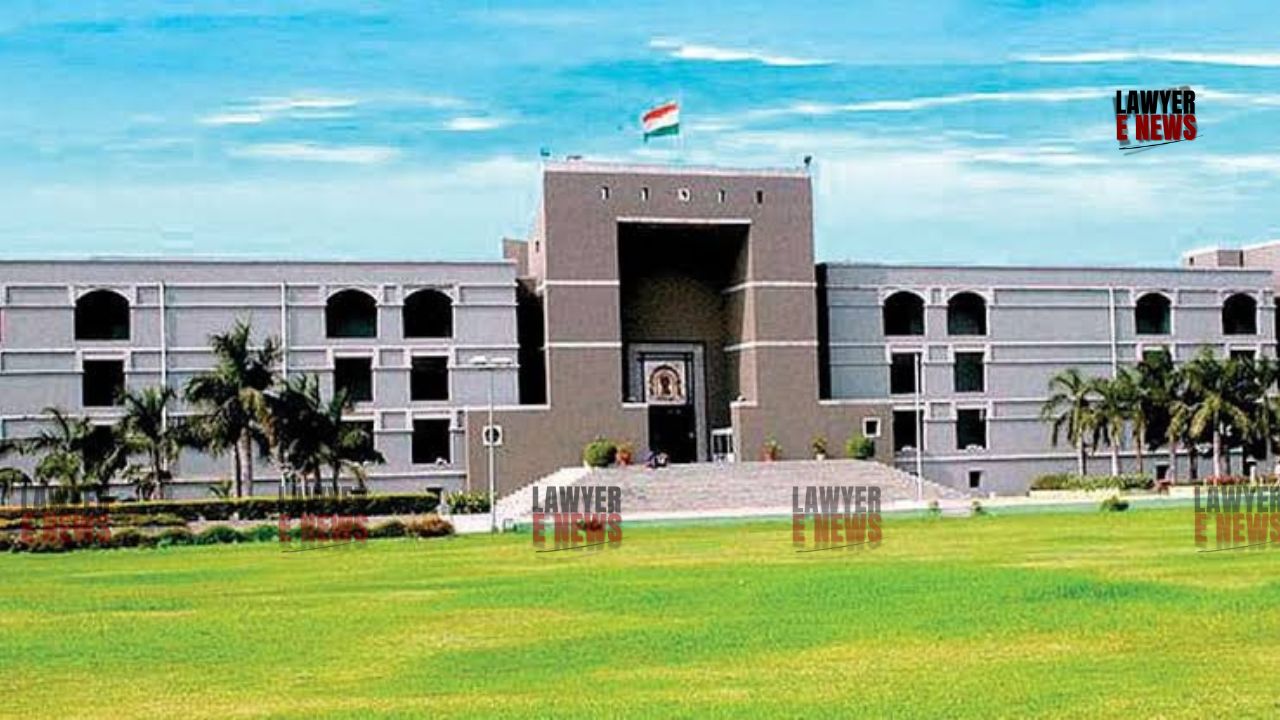-
by Admin
19 February 2026 3:14 PM



“When the Complainant Admits There Was No Demand, Recovery Alone Cannot Sustain Conviction”— Gujarat High Court dismissed the State’s appeal against the acquittal of a public servant accused under Sections 7, 13(1)(d), and 13(2) of the Prevention of Corruption Act, 1988. Upholding the trial court's decision, Justice Maulik J. Shelat reaffirmed that demand of illegal gratification is a sine qua non for conviction under the Act. The Court held:
“Mere recovery of tainted currency, without proof of demand, cannot constitute an offence under the Prevention of Corruption Act.”
The case originated from a complaint alleging that Ushaben Sharadbhai Shah, a government official, demanded ₹1,000 as a bribe from an unemployed man seeking a government loan. Based on this allegation, a trap was arranged by the Anti-Corruption Bureau. The accused was allegedly caught with the currency notes, leading to prosecution under Sections 7, 13(1)(d), and 13(2) of the Prevention of Corruption Act.
The Trial Court (Fast Track Court No.4, Vadodara), in its judgment dated 02/03/2007, acquitted the accused, finding that no demand had been proved and recovery alone was insufficient. Aggrieved, the State of Gujarat filed the present appeal under Section 378 CrPC.
Justice Shelat framed the key question succinctly: “Has the prosecution established the demand of bribe beyond reasonable doubt, so as to justify a reversal of acquittal?”
The Court found the answer in the negative, noting: “The complainant himself admitted during cross-examination that the accused had already forwarded his loan papers to the bank and had not demanded any money. He further stated that he voluntarily handed over the money from his pocket.” [Para 11]
In the absence of proof of demand, Section 20 of the Act—which creates a legal presumption of corruption on recovery—is inapplicable: “Presumption under Section 20 of the Act is not automatic; it can be invoked only after the foundational fact of demand is proved.” [Para 13]
The Court relied extensively on Constitution Bench authority in Neeraj Dutta v. State (Govt. of NCT of Delhi), (2023) 4 SCC 731, which held: “Proof of demand and acceptance of illegal gratification is a sine qua non to convict a public servant under Sections 7 and 13 of the Act.” [Para 88.1]
Further, the Court cited Mallappa v. State of Karnataka, (2024) 3 SCC 544, to underscore the high threshold required to overturn acquittals: “Presumption of innocence becomes even stronger when the trial ends in acquittal. A reversal is warranted only where the view of the trial court is demonstrably perverse or illegal.”
On Procedural Lapses and Witness Credibility:
The High Court concurred with the Trial Court that the prosecution failed to examine independent witnesses, including a police constable who was present at the trap: “Absence of corroborative testimony from available witnesses weakens the prosecution and casts a shadow on the fairness of the trap.” [Para 15]
Moreover, the complainant’s admissions critically undermined the case: “He clearly admitted the accused did not demand any money at the time of trap, and that she had already processed and forwarded the loan papers.” [Para 12]
Demand is the Cornerstone: Recovery Alone Is Not Sufficient
The Court emphasized that in corruption cases, the chain of demand–acceptance–recovery must be complete: “Where demand itself is absent or appears doubtful, even an actual recovery of money does not complete the offence.” [Para 13]
Quoting the Supreme Court’s recent decision in State of Lokayuktha Police v. C.B. Nagaraj, 2025 INSC 736: “When the initial demand is suspicious, even if payment and recovery are proved, the legal chain breaks. Penal statutes must be strictly construed.”
No Perversity in Acquittal, Appeal Dismissed
The High Court found no illegality, perversity, or error of law in the Trial Court’s acquittal:
“The Trial Court’s view is plausible and in full conformity with the evidentiary record and judicial precedents. There is no warrant for interference.” [Para 17]
Accordingly, the appeal was dismissed and the acquittal was confirmed.
This judgment serves as a cautionary tale for prosecuting agencies: the mere presence of bribe money is not enough. Demand must be unambiguously proved—whether by direct, circumstantial, or corroborative evidence—for a conviction under the Prevention of Corruption Act.
The Gujarat High Court’s reaffirmation of these legal principles reinforces the judiciary’s commitment to procedural fairness and strict interpretation of criminal law—particularly in anti-corruption prosecutions.
Date of Decision: 02 June 2025
